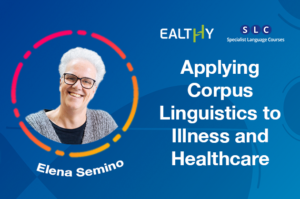
SIFE: Is Signing Off Without a Language Test Really Working for NHS Nurses?
Back to Menu ↩ When the NMC introduced the SIFE pathway in 2023, it was intended to solve a real and pressing problem: internationally educated

A slow start wastes valuable time and reduces the time available for completing tasks.
❌ Don’t:
✅ Do:
OET examiners assess how well you elicit and explore patient concerns. Use questions like:
💬 Do you have any idea what might be causing your symptoms?
💬 Is there anything that concerns you about that?
💬 Is there anything specific you would like to discuss?
Then, relate your explanations to the patient’s concerns:
✅ You mentioned your concerns about the local anaesthetic. Let me explain how it works.
✅ It’s understandable that you are worried about looking after your mother. Would it help if I explained in more detail?
✅ You asked about healing time. While I can’t say exactly how long, following the treatment plan will help recovery.
💡 Tip: Even if concerns are not mentioned on the role card, you should ask the patient about their worries. Plan for this in your preparation time.
The role card often contains extra information in brackets to help you complete your tasks.
🔹 Common Mistake: Ignoring or forgetting to use these details.
🔹 Solution: Underline key points on the role card and plan how to explain them clearly.
🚀 Pro Tip: Spend your preparation time understanding the role card so you don’t miss important details during the role play.
Speaking continuously without pausing can make your explanation difficult for the patient to follow.
✅ Key strategies:
💡 Tip: During preparation, underline task verbs to see how many different points you need to cover. You can also mark pauses on your card to help you remember.
Your role play must be understandable to a patient who does not have medical knowledge.
❌ Don’t use overly technical terms that may confuse the patient.
✅ Do explain medical concepts in simple terms.
📌 Example:
❌ “Asthma is a chronic inflammatory disorder characterized by hyperresponsiveness of the airways.”
✅ “Asthma is a condition where your airways become inflamed, making it harder to breathe.”
💡 Tip: If a patient looks confused, check their understanding before continuing.
Want to see real OET Speaking mistakes and learn how to fix them? Watch our expert breakdown in the full video!
Get a FREE handout summarizing these key speaking mistakes and strategies to improve your performance. Click here to download:
Specialist Language Courses (SLC) are dedicated to helping healthcare professionals excel in the OET. Our expert-led courses focus on the specific language skills and test strategies needed to succeed. With personalised coaching, practice tests, and targeted exercises, we ensure you build the confidence and competence required for each OET sub-test. Join SLC to boost your chances of achieving the scores you need and advancing your healthcare career

Back to Menu ↩ When the NMC introduced the SIFE pathway in 2023, it was intended to solve a real and pressing problem: internationally educated

If you’re at all interested in how language works in healthcare, you’d be nuts to miss the upcoming webinar from SLC and EALTHY.

Back to Menu ↩ Vocational ESOL focuses on the language that migrants and refugees need when working in the UK. Different sectors require different language
Get updates and get the latest materials on Medical English, OET and IELTS
🌈 Celebrate Holiwith 10% off on all 1-month and 3-month subscription courses!✨
